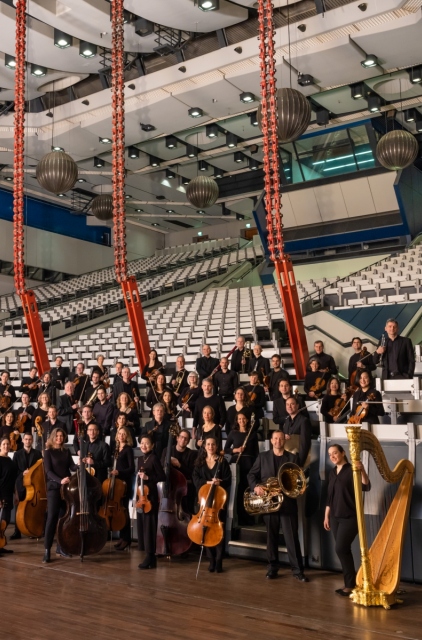
Programme
George Crumb
›God-music‹ for Violoncello and Crystal Glasses from ›Black Angels‹
Benjamin Britten
›Sinfonia da requiem‹
Edward Elgar
Cello Concerto in E minor
Charles Ives
Symphony Nr. 2
Artists
Patrick Hahn Conductor
- Sol Gabetta Violoncello
Deutsches Symphonie-Orchester Berlin
About the concert
Although Edward Elgar did not die until 1934, the Cello Concerto, composed between 1918 and 1919, was to remain his last major orchestral work. It can be understood as elegiac farewell music to the world of the 19th century, which disappeared with the First World War at the latest, and to whose tonal language Elgar remained committed even in the 20th century. The composition, which is characterised by great emotional urgency in its sung as well as in its “speaking”, recitative passages, did not make much of an impression at its premiere. However, at the latest since Jacqeline du Pré championed the work with identificatory commitment, it has won the hearts of the audience. Deliberately distancing himself from the English late Romanticism à la Elgar, Benjamin Britten developed his very own style. The composer wrote the ‘Sinfonia da requiem’ in 1940 as a commission for an imperial jubilee in Japan, but the work was ultimately not performed there because of its explicit reference to the Christian requiem mass. The sombre, brooding mood of the first movement, the haunting and garish second movement and the cautious appearance of redemption in the finale make the ‘Sinfonia’ one of the most impressive works of Britten’s early creative period.



